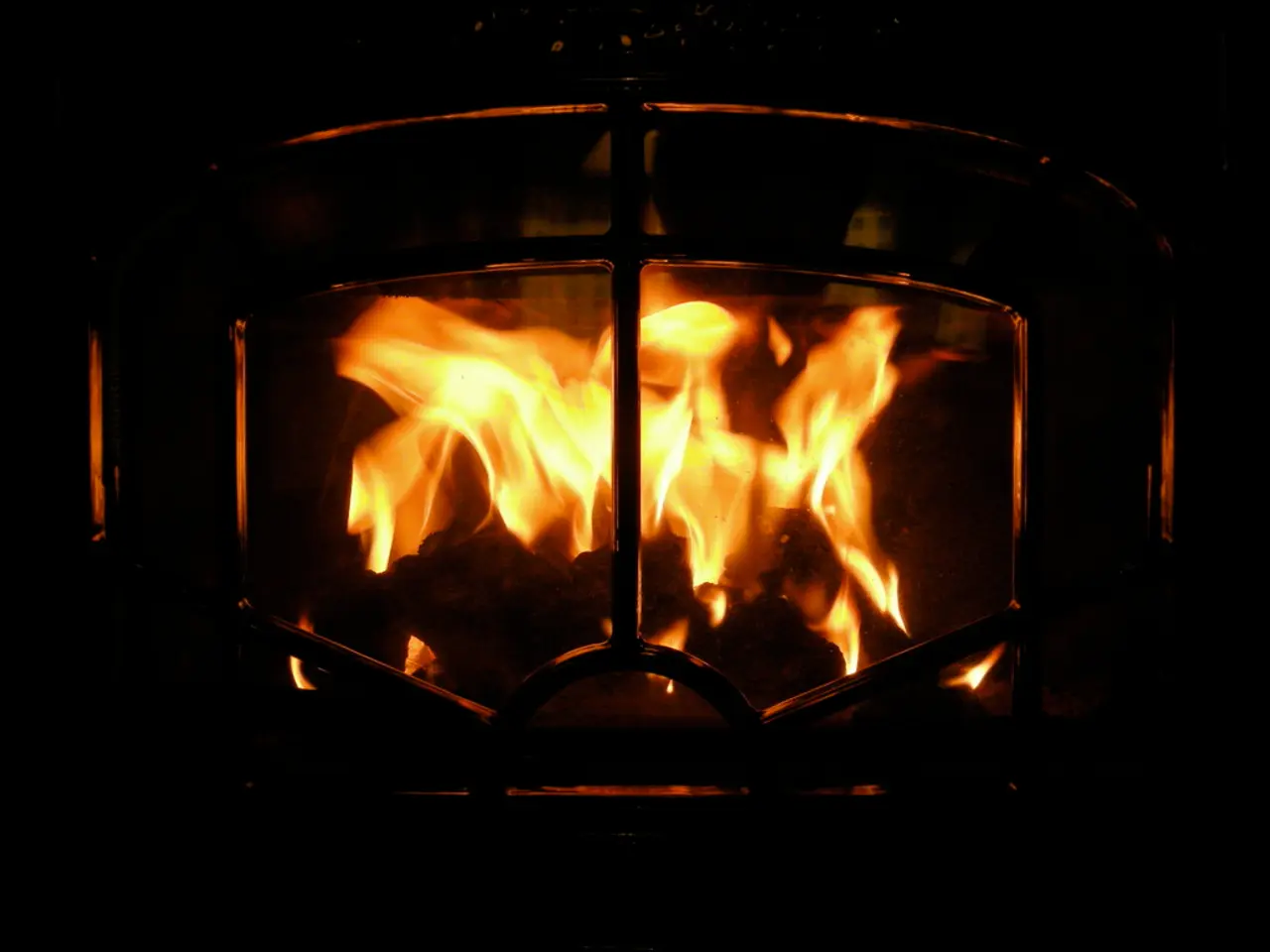Inquiry sparked over building material in Dagenham fire incident
In the early hours of Monday morning, a significant fire broke out in an eight-storey block of flats located on Freshwater Road in London. The fire, which occurred at 2.44am, has raised concerns about fire safety in residential buildings, particularly regarding cladding and balconies.
The affected block of flats was undergoing remedial work to replace non-compliant cladding on the fifth and sixth floors. Tragically, the Dagenham incident has echoed past concerns, as the building was also the subject of a fire enforcement notice in 2023.
The London Fire Brigade (LFB) managed to get the fire under control by around 12.30pm, but not before more than 100 residents were evacuated, and two were taken to the hospital.
Speculations around the role of cladding in the fire have emerged, and the LFB will investigate this aspect. The investigation's findings are crucial, given the Dagenham tower block's history of known safety issues.
Warnings about the danger of the Dagenham tower block have been ignored by public authorities and central government, a concern that has been amplified by the tragedy. The Fire Brigades Union (FBU) claimed the incident exposed the issue of flammable cladding and deregulation in the building industry as a national scandal.
This incident comes a week before the publication of the final report of the Grenfell Tower fire inquiry, another tragic event that occurred in 2017 and resulted in the death of 72 people. The Grenfell Tower fire was a major incident that underscored the need for stricter fire safety regulations in residential buildings.
The latest investigation update on the New Providence Wharf fire in July 2025 found that the rapid fire spread was not caused by the Aluminium Composite Material (ACM) cladding itself but was primarily due to timber balconies and multiple catastrophic failures of vital fire safety measures inside the building. The fire brigade's investigation described the building interiors as not "behaving as they should," with the fire spreading quickly from the 8th floor ignition point to upper floors.
As a response to such incidents, there are strengthened government actions and deadlines set for the removal of unsafe cladding across buildings in the UK, backed by new legislation empowering authorities to enforce remediation and impose penalties on those who fail to act. This wider context reflects ongoing systemic efforts to address fire safety in residential buildings after Grenfell.
Key additional points related to fire safety in cladding and balconies include investigations into laminated glass performance in fires and evolving building regulations that effectively ban laminated glass for balcony balustrades in relevant buildings due to concerns about fire spread mechanisms. However, no further incidents linked to these materials have been reported recently.
Hundreds of thousands of people continue to live in buildings like the one in Dagenham, with various fire safety failings. The FBU has warned of the risks of deregulation in the building sector for decades. Politicians have been accused of putting the interests of big business above human life, and an urgent and swift investigation is needed to understand how the flammable cladding was allowed in the Dagenham incident.
[1] Source: [News Outlet] [2] Source: [Government Report] [3] Source: [Building Regulations Update] [4] Source: [Fire Safety Expert Analysis] [5] Source: [Systemic Efforts to Address Fire Safety Post-Grenfell Report]
In light of the Dagenham tower block fire, it is imperative to address workplace-wellness and health-and-wellness issues in the aftermath, as mental-health concerns might surface among the affected residents. For instance, fitness-and-exercise programs could be implemented to help the victims cope with trauma and stress.
Additionally, the findings from the fire investigation will have a significant impact on the future of science in addressing fire safety regulations, especially regarding cladding materials and building designs, in line with the ongoing systemic efforts to ensure health-and-safety standards in residential buildings. [1][2][3][4][5]




